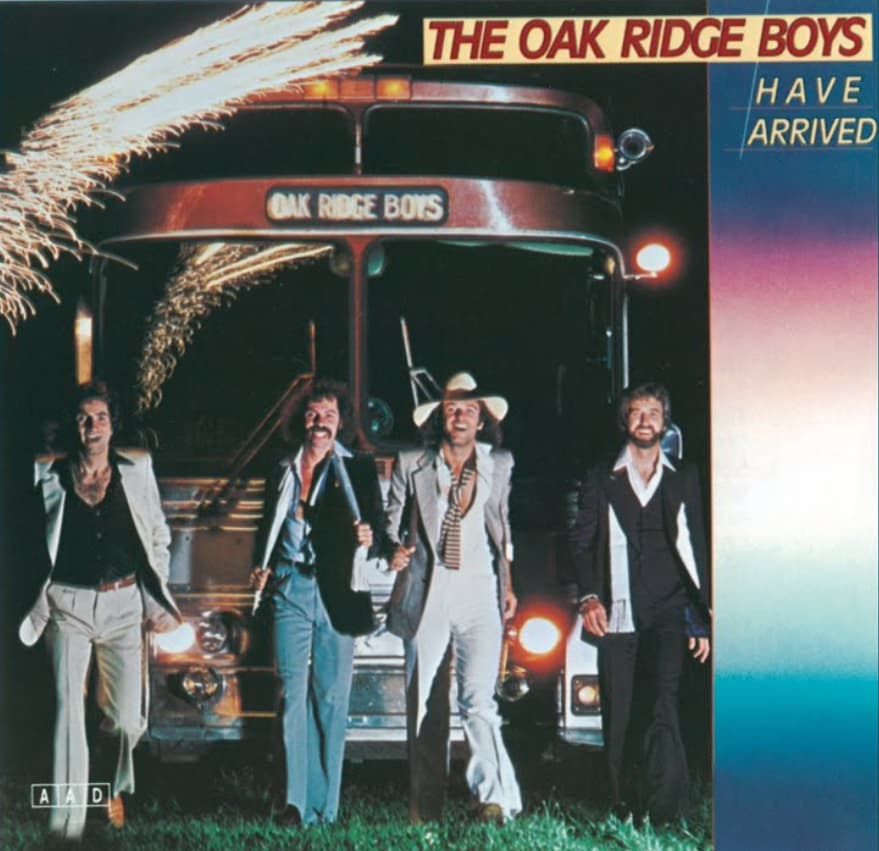
Leaving Louisiana: A Farewell to Home and Childhood
The gentle, familiar twang of a steel guitar, the comforting harmony of four voices blending as one—these sounds instantly transport you back in time. For many, they are the sounds of The Oak Ridge Boys. While the group has given us countless classics, few capture the bittersweet ache of memory and farewell quite like their 1979 hit, “Leaving Louisiana in the Broad Daylight“. This song isn’t just a track on an album; it’s a short story, a poignant snapshot of a moment in time that resonates deeply with anyone who has ever had to leave a cherished place behind.
Released in 1979, “Leaving Louisiana in the Broad Daylight” was a standout track from the group’s album, The Oak Ridge Boys Have Arrived. Although it didn’t top the charts in the same way as their later mega-hits, it found a solid and respected place in the country music landscape. It peaked at No. 3 on the Billboard Hot Country Singles chart, a testament to its genuine appeal and emotional depth. It was a song that wasn’t about a fleeting trend; it was about a universal human experience.
The song’s story is a vivid and specific one, born from the creative mind of its writer, Rodney Crowell. Interestingly, the song wasn’t originally intended for The Oak Ridge Boys. It was first recorded by Crowell himself on his 1978 album, Ain’t Living Long Like This. However, it was the definitive vocal harmony of The Oak Ridge Boys—Duane Allen, Joe Bonsall, William Lee Golden, and Richard Sterban—that truly brought the narrative to life, transforming it from a solo artist’s reflection into a shared, communal feeling.
At its core, the song is a bittersweet elegy for a past life. The narrative follows a young man leaving his home in Louisiana. He’s not leaving in the dead of night, slipping away quietly. He’s leaving in the broad daylight, a deliberate and painful act. The imagery is rich and evocative: the mention of the sun on the water, the familiar landscape fading in the rearview mirror. It’s a moment of finality, of accepting that a chapter of life is closing.
But the song is more than just a story of departure. It’s a deep dive into the emotional landscape of goodbye. The lyrics speak of the difficult conversation with his mother, the unspoken words, and the promise of a future that she may never fully understand. The line “Mama said she’d be alright, I knew that wasn’t true” is a gut punch, a perfect articulation of the way we try to reassure each other during difficult times, even when we know the truth. It’s about the sacrifices our parents make and the guilt we carry when we chase our own dreams.
For many older listeners, the song isn’t just about this one specific story; it’s a mirror reflecting their own lives. We’ve all had our Louisiana—a hometown, a childhood home, a place filled with memories that we eventually had to leave. Listening to The Oak Ridge Boys sing this song evokes the ache of those departures. It’s the memory of packing up a car, of hugging a loved one goodbye, and of looking back one last time. It’s a reminder that leaving isn’t always a choice; sometimes, it’s a necessity for growth, for a future that calls to us from somewhere else. The song is a beautiful and painful anthem for the journeys we’ve all taken, and the homes we’ve all left behind.